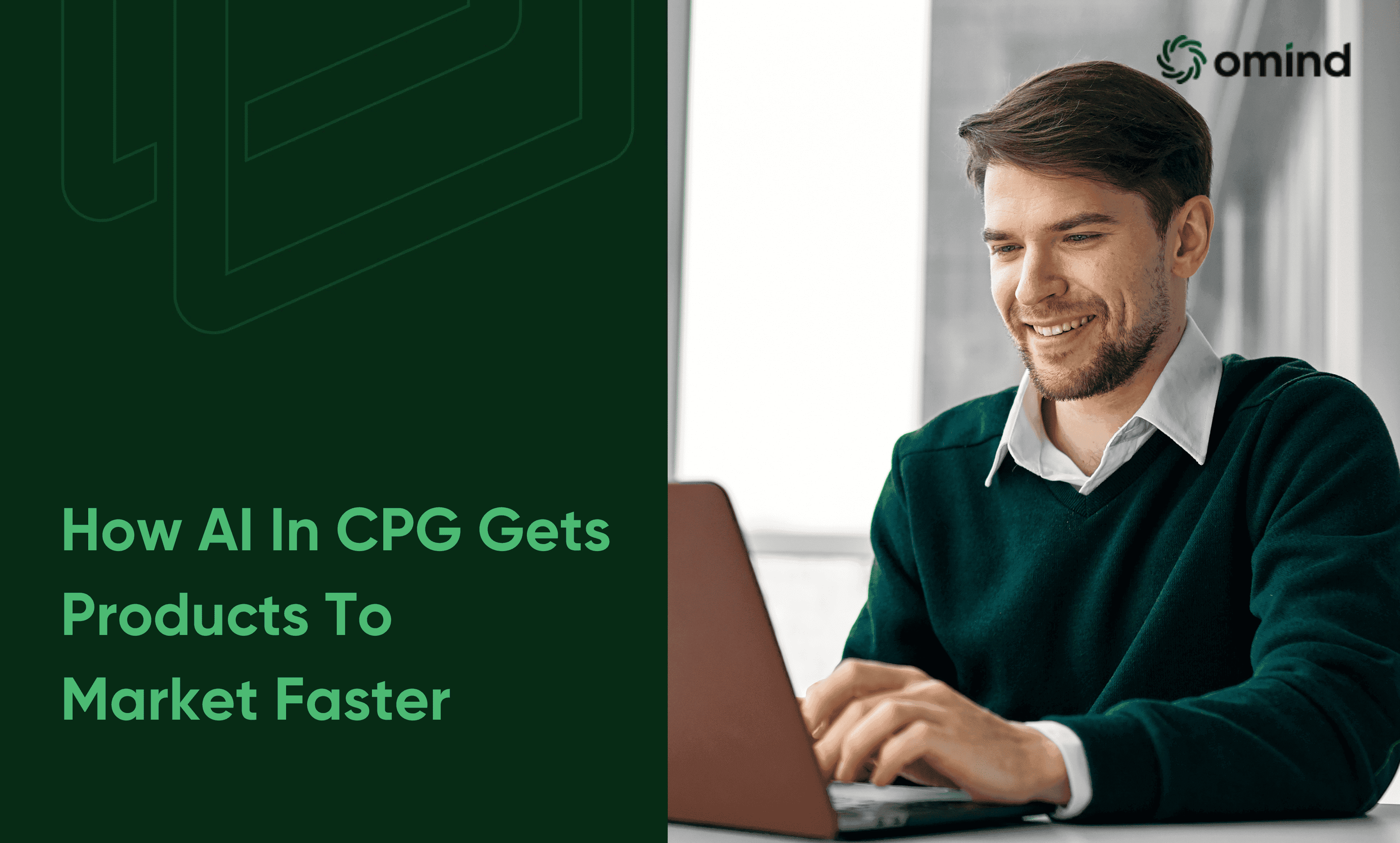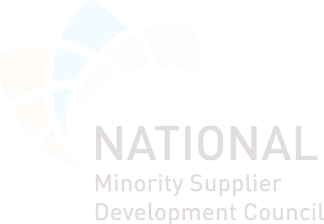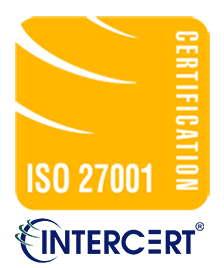The consumer packaged goods (CPG) industry is undergoing a significant transformation driven by artificial intelligence (AI). A McKinsey report estimates that Generative AI could create $2.6 trillion to $4.4 trillion in annual benefits across various industries, with the CPG sector being a prime beneficiary. AI can create entirely new products with generative models, personalize marketing with targeted ads and chatbots, and optimize the supply chain with smarter forecasting and maintenance. While challenges like data security and human integration exist, companies that embrace AI responsibly can expect a future of highly personalized products, exceptional customer experiences, and maximized efficiency.
This article delves into the applications of AI in CPG, exploring how it enhances efficiency, accuracy, and speed in getting products to market.
Introduction to AI in the CPG Industry
CPG AI refers to the application of Artificial Intelligence and Machine Learning (ML) in the consumer packaged goods industry. It involves utilizing advanced algorithms to extract valuable insights from vast amounts of data, both structured and unstructured. This empowers CPG companies to make data-driven decisions that optimize processes and ensure a competitive edge. By leveraging AI, CPG companies can streamline various aspects of their operations, leading to faster product development cycles and efficient product launches. AI facilitates accurate demand forecasting, reduces time spent on manual tasks, and optimizes supply chain management, ultimately accelerating the time it takes to get products onto store shelves.
Decoding the Mechanics of AI in CPG
The secret sauce of AI in CPG lies in its ability to process massive amounts of data. AI algorithms aren't limited to just sales figures - they can analyze social media chatter revealing consumer preferences, delve into market research studies, and identify patterns across this vast data ocean. This unearths hidden trends and desires that traditional methods might miss. Imagine AI discovering a link between weather and ice cream flavors, prompting a new seasonal line. Furthermore, AI can analyze historical data alongside social media trends to predict future demand with surprising accuracy. This allows CPG companies to optimize production, stock, and promotions to meet these ever-changing needs.
Hyper-Accurate Forecasting: Ensuring accuracy in demand prediction
One of the most impactful applications of AI in CPG is demand forecasting. Unlike traditional methods that rely solely on historical sales data, AI algorithms are data hungry beasts. They can devour massive datasets encompassing historical sales figures, current market trends, and even external factors like weather patterns and social media sentiment. By analyzing these interconnected data points, AI can predict future demand with significant accuracy. Industry reports suggest potential accuracy exceeding 85% in some cases. This newfound ability to anticipate consumer needs empowers CPG companies to optimize production plans. Imagine a company producing sunscreen – with accurate forecasts, they can anticipate a surge in demand before summer and ensure sufficient stock reaches stores, preventing frustrating out-of-stock situations for consumers.
Prescriptive Analytics for Strategic Decision Making: Recommendations for supply chain optimization

Imagine a complex supply chain with numerous variables – fluctuating demand, production capacity constraints, and ever-evolving market trends. Prescriptive analytics, powered by advanced AI algorithms, goes beyond identifying these trends (e.g, a surge in demand for a new organic cereal). It delves deeper, recommending specific actions to optimize the supply chain for maximum efficiency. Prescriptive analytics can consider factors like factory location, production capacity, and transportation costs. AI can analyze social media sentiment and online reviews to gauge consumer reception of a new offering. This allows it to recommend strategic promotions targeted at specific demographics, further maximizing sales and market penetration.
AI in CPG is not static. It continuously learns and adapts based on real-time data streams. This allows for ongoing optimization of strategies as market conditions or consumer preferences evolve.
Scenario Simulation: Using 'what-if' analyses for better decision making
The ability to peer into the future, even if through a simulated lens, is another powerful advantage AI offers CPG companies. This is achieved through scenario simulations, where AI constructs virtual models that predict the potential outcomes of various situations. By analyzing these simulations, the CPG company can proactively make informed decisions. Simulations can also help identify potential threats from competitors, allowing the company to adjust their marketing strategy or refine their product offering to maintain a competitive edge.
Comparing Traditional and AI-Powered Demand Sensing
Compared to traditional demand sensing methods, AI instills a substantial amount of dynamism into the CPG industry. Traditional approaches often rely solely on historical sales data and established statistical models, which can struggle to adapt to rapidly evolving markets. AI-based demand sensing, however, acts as a sophisticated information hub, ingesting not just historical sales figures, but also a vast array of external factors that can influence consumer behavior.
AI-Driven Supply Chain Innovations

AI Techniques vs. Traditional Methods in Inventory Optimization
Traditional inventory management often relies on safety stock buffers to avoid stockouts. AI-powered inventory optimization uses dynamic safety stock calculations based on real-time data, reducing overall inventory levels while ensuring product availability.
Key Approaches: Multi Echelon Visibility, Dynamic Safety Stock, Automated Replenishment, Promotion Optimization, Omnichannel and Shelf Life Prediction
Traditionally limited visibility across the market chain can lead to stockouts or overstocking. AI solves this with multi-echelon visibility, providing a real-time, comprehensive view of inventory levels at every stage. Next, AI tackles static safety stock by analyzing data to determine the optimal inventory level at each step, minimizing stockouts and storage costs. Manual ordering is automated as AI analyzes sales data and triggers automated orders for a smooth flow of goods. AI doesn't stop there – it analyzes past promotions and consumer sentiment to tailor future promotions for maximum impact. Finally, AI predicts product shelf life, preventing spoilage and waste. This holistic AI-powered approach empowers CPG companies to achieve greater efficiency, reduced costs, and improved sustainability within their supply chains.
AI automates the replenishment process, analyzing real-time sales data and automatically generating optimal reorder quantities. This eliminates human error and ensures timely product availability.
The Impact of AI on Speed to Market

AI significantly reduces the time spent on demand forecasting and inventory management. By automating tasks and providing highly accurate insights, AI streamlines these crucial processes, allowing CPG companies to focus on product development and innovation. AI also empowers CPG companies to make informed decisions about product launches. By analyzing consumer preferences and market trends, AI can identify optimal launch windows and predict potential demand for new products. This allows companies to introduce products at the right time, maximizing sales potential. AI further streamlines the replenishment process, ensuring a constant flow of goods to retailers. By analyzing sales data and predicting demand fluctuations, AI helps companies anticipate stockouts and automatically trigger replenishment orders. This minimizes delays and ensures a smooth supply chain, ultimately accelerating product availability to consumers.
Conclusion: The Competitive Advantage of AI Adoption in CPG
In conclusion, AI offers a multitude of benefits for CPG companies. It enhances accuracy in demand forecasting, optimizes inventory management, and streamlines supply chain operations. This translates to faster product development cycles, efficient product launches, and quicker responses to market needs. The CPG industry is becoming increasingly competitive. As consumer preferences evolve rapidly, the ability to adapt and innovate is crucial. By embracing AI, CPG companies gain a significant advantage, ensuring they remain at the forefront of the market and deliver products that meet the ever-changing needs of consumers.
OMind’s AI-powered platforms are future-ready for you to integrate into your business, and will help you turn website visitors into customers that want to stay. To learn more about how we can help you improve ROI from your business investments, schedule a demo with the Omind team.
AUTHOR
Team Omind
Empowering Businesses with Unified Customer Experience Platform, Leveraging Advanced AI and Intelligent Automation
PRODUCT
AI
Share LINK
Related Blogs




